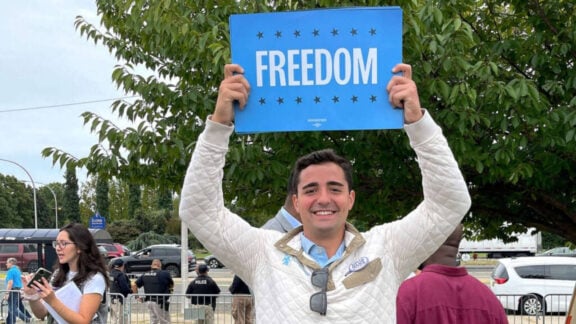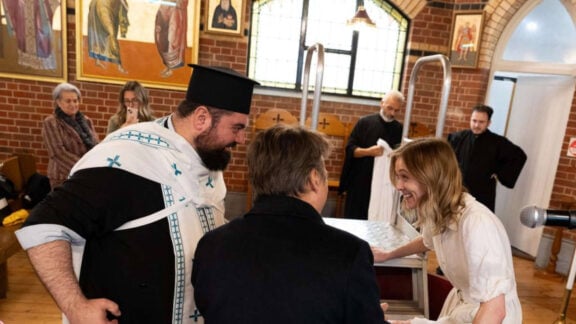When SBS Radio debuted on the airwaves, the first language that was heard was Greek.
Back then, it was a language per day, and the Greek programme with Takis Kaldis launched SBS Radio in 1975.
The program was one of a kind. Devoid of advertising, it spoke to Greeks about issues at the heart of the migrant plight in Australia and did so in their language. While other Greek radio stations and programs existed before SBS Radio, it was SBS that became the journalistic vanguard.
A journalist with SBS from the early days is current 3XY broadcaster Rena Frangioudaki. She remembers the Greek program striking a chord with Greeks from all walks of life at the time.
“Back then the program was like a religion,” she tells Neos Kosmos.
“Our listeners were even late for work so they could stay and listen to the program.”
The topics covered in the first years of SBS were much more community-based, with weekly segments covered by various groups in the community.
“We had shows for the young, the old, Cypriots, Cretans,” Ms Frangioudaki says.
Most of the staff who worked at SBS back then were volunteers, and would go out of their way to get news to the community.
The lack of technology didn’t help either. Ms Frangioudaki remembers being frustrated having to wait for days and weeks for the Greek dailies to arrive in Australia by ship.
The program really developed into what many recognise today back in the ’90s.
Coming to SBS in 1990, Sydney’s senior producer Efthymios (Themi) Kallos says the program developed at the same time as SBS matured as a broadcaster.
“As the years went by, the station and the programs we produced became more orientated towards information and current affairs and less about community announcements,” he tells Neos Kosmos.
“If you ask the top SBS officials they would say we became more professional.”
Now, SBS Radio has grown to include 74 language programs, a digital and online presence and is across all social media platforms.
As a go-to place for news in the Greek community, it’s no surprise that SBS and Neos Kosmos have a long history of working alongside each other.
Neos Kosmos’ publisher Dimitiris Gogos was given the first license for what was to become SBS, then called 3EA (Ethnic Radio) in Melbourne. The Sydney licence went to a Neos Kosmos contributor, Takis Kaldis.
Editor-in-chief of Neos Kosmos, Sotiris Hatzimanolis, still works at SBS Radio in Melbourne on a casual basis, and was on air with fellow Neos Kosmos journalists, the late Kostas Nikolopoulos, Babis Stavropoulos and sports editor Elias Donoudis in the 1970s.
“It’s a team effort,” Mr Kallos says.
“Neos Kosmos has been very supportive of SBS and its principles.”
Back in the 1970s, SBS Radio’s establishment was a risky investment. The Whitlam government gave Al Grassby, from the Commission of Community Relations, $67,000 to start 2EA and 3EA to pay for two full-time staff for three months.
The investment paid off, and SBS Radio launched some months later, broadcasting in seven languages.
Now as SBS looks to the future, their principles are still at the heart of everything they do.
“We remain dedicated to connecting to the communities, through multilingual conversations across all platforms and devices always in order to inspire social cohesion in Australia,” Mr Kallos says.









